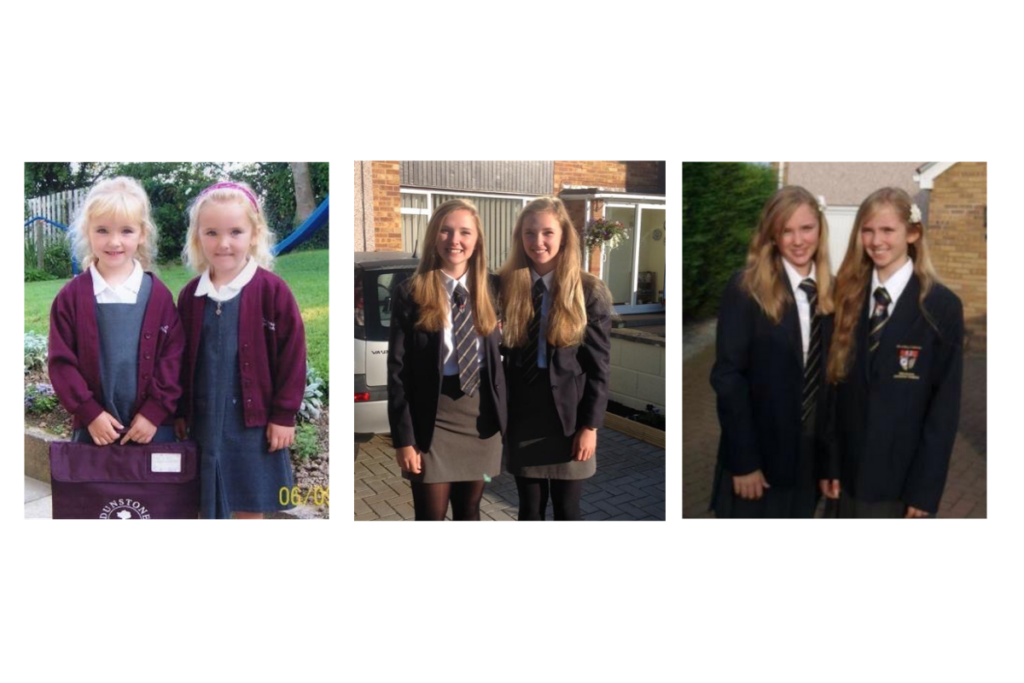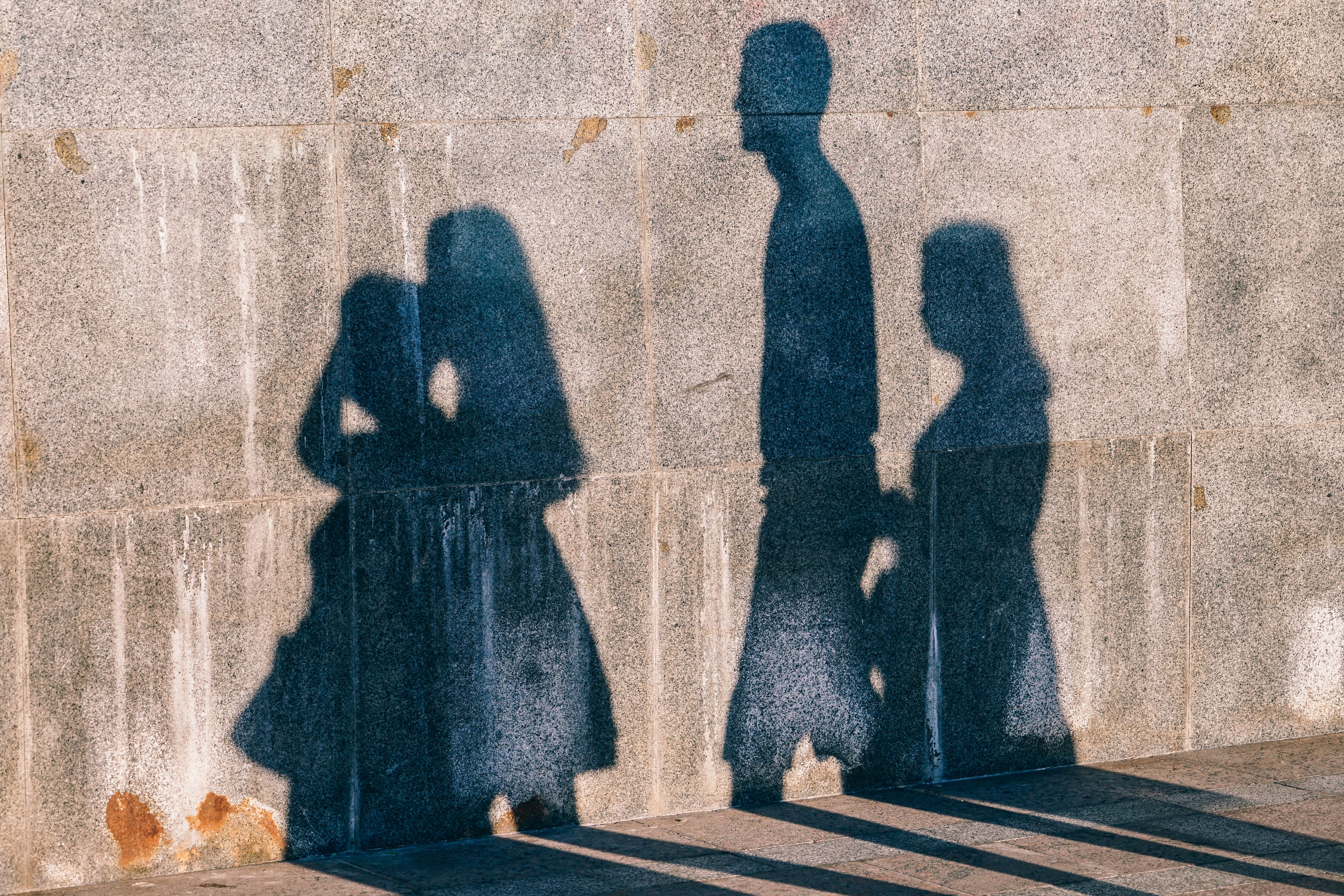Posted February 03rd 2021
Growing up I lived a very sheltered life.
I was privileged to live in a safe household with three older sisters (including a twin sister, pictured below) who were talented, charismatic and confident (everything I felt I was not).
If we were ever with friends or family, they would address my older sisters in conversation and rarely talk to me individually.
I grew to quite like this, as I didn’t need to worry about sparking interesting conversation or throwing in some funny one-liners; my sisters did the talking for me and I went unnoticed.
I felt if I didn’t say anything then I wouldn’t say anything wrong and that was the safest thing to do.
But when parents evening came around every year, the same comments were made, “Jess should put her hand up and contribute more in lessons” which left me feeling very inadequate.
Painful memories
School was also a difficult place for me, straight from reception to the sixth form. I am sad to say I never enjoyed a single day of it and any memories that were free from mental illness are absent in my mind.
My anxiety made me mute and I would experience panic attack like symptoms if I ever felt ill, needed the toilet during a lesson, got feedback from an assessment or was called on to answer a question in class.
My silence wasn’t just noticed by the teachers but also by my peers.
I began to be labelled as the quiet and moody twin, whereas my twin sister was getting endless boyfriends, my older sister was placed in the ‘gifted and talented’ classes for every subject and my eldest sister was head girl.
I felt extremely alone in a quiet world with an endless war inside my head.
Friends would come and go with no explanations for leaving, and I would latch onto my twin as I knew she would never leave me.
I remember entire break and lunchtimes when I would sit in silence just watching the day go by.
I didn’t speak because I was too scared to and I also believed that I just had nothing interesting to say anyway.
So, I was just labelled shy.

But someone who is shy doesn’t avoid drinking or eating all day so they don’t have to ask in front of the whole class if they can use the toilet.
Shy people don’t feel their world collapse every time someone looks at them.
Shy people don’t sit on their bedroom floor in the dark every night crying because they don’t have anyone to talk to.
Why was this all normalised as a child?
Why do people try to just tell me it is who I am, telling me a clinical and debilitating mental illness is just part of my personality, a solid feature of what makes me, me, that I cannot shift or remove?
When I experienced several panic attacks, I finally decided for myself that I needed help.
By this time, I was 16 and had developed depression and an eating disorder which accelerated my anxiety.
Friends didn’t understand why I ate just a cluster of lettuce every day for lunch or spent every second I had revising.
They tied it to my personality, made it a joke and never offered any help even when I was sat there crying right in front of them.
It wasn’t just friends at school, it was also doctors that treated me like I was just another girl going through a ‘rough patch’ in my life.

GPs spoke to my mum rather than me in appointments, undermined my difficulties and told me that they couldn’t give me medication as they haven’t been tested on people under 18 years old.
It came blatantly apparent to me that our society is greatly unaware that children can suffer from screaming voices and depressed thoughts just like any adult can.
Yet we are often dismissed due to the interplay of complex hormones during puberty, the stereotypical view of a moody teenager and struggles of coming into yourself as a young adult.
And it never occurred to me, my family, friends or doctors that I could be experiencing something beyond the norm and required severe help to shift and remove this part of me: clinical mental illness.
Finally, some hope
Once I turned 18, I was easily and quickly given medication, many different forms of NHS and private therapy and I successfully left mainstream education to head into my first-choice university to study psychology.
Whilst I still try to manage and still compete with my depression, I hope that at the end of my degree I can finally give people the help I greatly needed when I was a child.
Support
- Young Minds UK’s leading charity fighting for children and young people’s mental health.
- Childline a counselling service for children and young people up to their 19th birthday in the UK.
- The Mix offers support for anyone under 25 about anything that’s troubling them.
- Papyrus offer confidential support for young people struggling with suicidal thoughts.
- Beat offers information and support for anyone affected by eating disorders.
Read more
- Mental Health Foundation: Impact of lockdown on the mental health of children and young people
- NCMH: Children’s mental health during COVID-19
- NCMH leaflets: ADHD, Autism, Depression in young people, Self-harm
Sign up now and receive new blog posts to your inbox.
